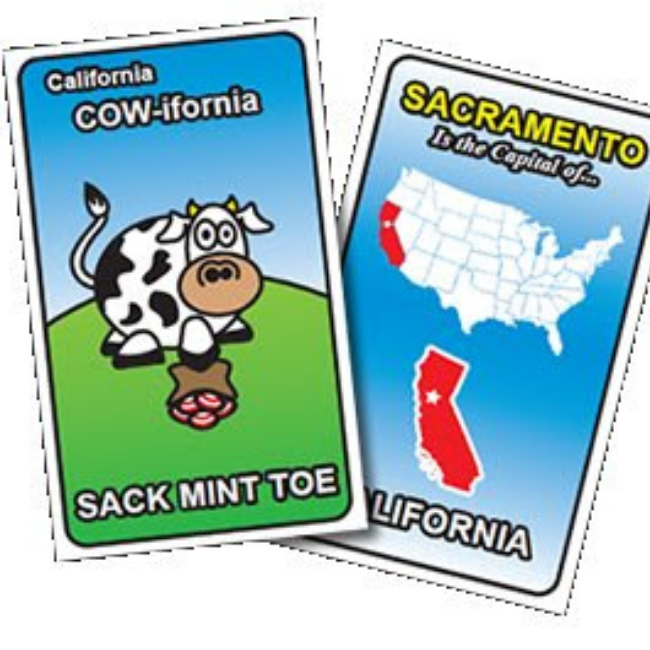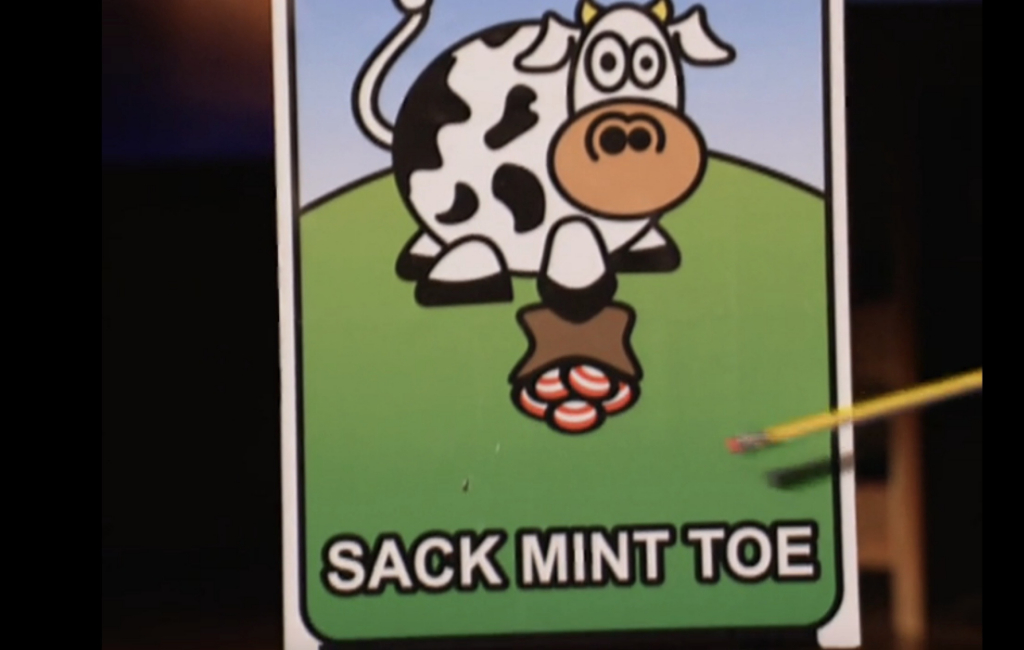50 State Capitals Flashcards

NO DEAL
EPISODE SUMMARY
🕓 Air Date: August 23, 2009
Asking For:
$155,000 for 10%
Investor:
No Deal
Deal:
No Deal
PRODUCT SUMMARY
50 State Capitals in 50 Fun Minutes offers an educational tool for kids in the form of flashcards with a CD included, aiming to revolutionize the learning experience of US state capitals.
WATCH HERE
IN A RUSH?
Click these to jump to the section you want to read.
Background Story
50 State Capitals in 50 Fun Minutes was conceived by Ken Bradford, an aspiring entrepreneur with a passion for education and innovation. Bradford’s background is rooted in a combination of creativity and education. Prior to developing his educational tool, he likely gained experience in teaching or educational materials development, as evidenced by his keen understanding of effective learning techniques for children. His decision to create an engaging and interactive method for learning state capitals reflects his commitment to making education fun and accessible for young learners.

The inspiration for 50 State Capitals in 50 Fun Minutes likely stemmed from Bradford’s observations of traditional learning methods and their limitations. Recognizing the challenge children face in memorizing state capitals, Bradford sought to create a more engaging and effective alternative. Drawing upon mnemonic devices and interactive elements, he developed a product that aimed to transform the learning experience into an enjoyable and memorable journey.

Driven by his belief in the potential of his idea, Bradford embarked on the journey of entrepreneurship, investing time and resources into developing a prototype of his educational tool. His appearance on Shark Tank signaled his desire to take his product to the next level, seeking funding and support to bring his vision to life on a larger scale. Though faced with rejection from the Sharks, Bradford’s passion and dedication to improving education for children remained unwavering, fueling his determination to continue pursuing his entrepreneurial dreams.
The Product
50 State Capitals in 50 Fun Minutes offers a unique educational tool designed to make learning US state capitals engaging and effective for children. The product consists of a deck of flashcards accompanied by a CD, providing an interactive learning experience. Each flashcard features a state capital paired with a mnemonic device or visual association to aid memorization. For example, “PENCIL-vania” represents Harrisburg, Pennsylvania.
The product’s key feature lies in its ability to transform rote memorization into an enjoyable and memorable process. By incorporating quirky associations and interactive elements, such as the included CD for auditory learning, the tool aims to capture children’s attention and facilitate better retention of information.
Parents, teachers, and homeschooling educators can purchase the product online through the company’s website or select retailers. While the exact pricing was not provided during the pitch, it can be assumed that the product is affordably priced to appeal to its target market.
The benefits of 50 State Capitals in 50 Fun Minutes extend beyond mere memorization, fostering critical thinking skills and geographical knowledge in children. By making learning fun and interactive, the product encourages active engagement and participation, leading to better educational outcomes.

How It Went
The company’s position before Shark Tank
As portrayed in the pitch on Shark Tank, 50 State Capitals in 50 Fun Minutes was in its nascent stages, with limited sales and market penetration. The company’s health and position were characterized by its early development phase, lacking significant traction or revenue streams. While the founder, Ken Bradford, demonstrated enthusiasm and belief in the product’s potential, the lack of proven sales and market validation posed challenges for the company’s growth and sustainability.

At the time of the pitch, 50 State Capitals in 50 Fun Minutes had not established partnerships with wholesalers or prominent retailers, relying primarily on direct sales through its website or select channels. The target customers for the product included parents, teachers, and homeschooling educators seeking innovative educational tools for children. In terms of funding, the company was seeking investment from the Sharks to support its expansion efforts and product development. However, with no concrete sales figures or evidence of market demand, securing funding proved challenging, resulting in the Sharks opting out of making an investment.

In terms of company structure, 50 State Capitals in 50 Fun Minutes was likely a small, lean operation, with Bradford serving as the founder and potentially handling various aspects of the business, including product development, marketing, and sales. The company’s organizational structure may have been flexible and adaptable, allowing for agility in responding to market feedback and opportunities for growth. However, without a proven track record of success or established market presence, the company faced uncertainties regarding its long-term viability and competitiveness in the educational products market.
The Negotiations:
During the negotiations on Shark Tank, Ken Bradford sought a $155,000 investment for a 10% equity stake in 50 State Capitals in 50 Fun Minutes. Despite Bradford’s enthusiasm and belief in his product’s educational value, the Sharks expressed concerns about its market viability and revenue potential. One by one, the Sharks bowed out of making an investment, citing various reasons such as the lack of sales, unproven market demand, and perceived riskiness of the venture.

While Bradford’s passion for education and creativity were evident, the Sharks ultimately deemed the business too speculative without concrete evidence of success. Barbara Corcoran praised Bradford’s idea but questioned its profit potential, opting out of making an offer. Mark Cuban shared similar sentiments, expressing doubts about the product’s ability to generate substantial returns. Kevin O’Leary, known for his pragmatic approach, saw the product’s potential but deemed it too risky without a proven track record.

Daymond John echoed this sentiment, emphasizing the importance of tangible sales and market validation before considering an investment. Despite the rejection, Bradford remained optimistic and thanked the Sharks for their time and feedback. Ultimately, he left the tank without a deal, recognizing the challenges of securing funding without solid sales or market traction. The negotiations served as a valuable learning experience for Bradford, highlighting the importance of proving the viability and profitability of his product before seeking investment.







